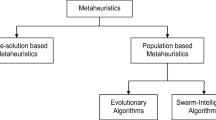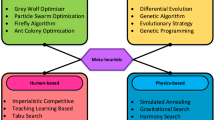Abstract
Multi-Agent System (MAS) appears to be an efficient, low cost, flexible, and reliable form of system, these features turns the MAS as a perfect solution for resolving complicated jobs. Personalisation is defined as the process of addressing the learner-specific techniques and their intentions or ideologies for assisting and promoting the process of an individual’s learning success. The process of both modelling and estimating the above mentioned tasks in the internet is now turning out to be a tedious task due to the continuous growth in their sizes. Here, a decentralized technique based on a multi agent optimized clustering process has been found to work well for large data sets. Genetic Algorithms (GAs) are observed as the stochastic global optimization techniques that are meant for solving the optimization problems. The Firefly algorithm (FA) is the most efficient algorithms adopted for performing the global optimization tasks in complicated search spaces. Another type of population-oriented algorithm is the Differential Evolution (DE) algorithm. In this research article a novel combination of DE and the Firefly global optimization algorithms considered as the Hybrid Firefly Algorithm Differential Evolution (HFADE) for performing the clustering tasks in an efficient manner. The effectiveness of the HFADE was experimented with benchmark functions, the achieved results shows the Hybrid algorithm well suitable for the Learning Optimisation Problems.




Similar content being viewed by others
Change history
23 May 2022
This article has been retracted. Please see the Retraction Notice for more detail: https://doi.org/10.1007/s12652-022-03953-3
References
Abuelnasr M, El-Khattam W, Helal I (2018) Examining the influence of micro-grids topologies on optimal energy management systems decisions using genetic algorithm. Ain Shams Eng J 9(4):2807–2814
Banerjee C, Saxena S, Sharma I (2014) Consensus achievement in multiagent system using adapted firefly algorithm. In: 2014 2nd International Conference on Emerging Technology Trends in Electronics, Communication and Networking IEEE, pp 1–4
Dorri A, Kanhere SS, Jurdak R (2018) Multi-agent systems: a survey. IEEE. Access 6:28573–28593
el Hassouni A, Hoogendoorn M, van Otterlo M. Barbaro E (2018) Personalization of health interventions using cluster-based reinforcement learning. In: International Conference on Principles and Practice of Multi-Agent Systems Springer, Cham, pp 467–475
Ferreira VG, Canedo ED (2020) Design sprint in classroom: exploring new active learning tools for project-based learning approach. J Ambient Intell Humaniz Comput 11:1191–1212
Gottipati NR, Rama Prasath A (2019) A multi-agent bio-inspired system to map learners with learning resources using clustering based personalization. Int J Innov Technol Explor Eng (IJITEE) 8(10):4395–4403
He W, Chen G, Han QL, Qian F (2017) Network-based leader-following consensus of nonlinear multi-agent systems via distributed impulsive control. Inf Sci 380:145–158
Heidari A, Moradi M, Aslani A, Hajinezhad A (2018) Optimization of micro-grid electricity market based on multi agent modeling approach. Int J Energy Optimiz Eng (IJEOE) 7(3):1–23
Hou W, Fu M, Zhang H, Wu Z (2017) Consensus conditions for general second-order multi-agent systems with communication delay. Automatica 75:293–298
Hu W, Wen G, Rahmani A, Yongguang Y (2019) Differential evolution-based parameter estimation and synchronization of heterogeneous uncertain nonlinear delayed fractional-order multi-agent systems with unknown leader. Nonlinear Dyn 97:1087–1105
Jafari M, Xu H, Carrillo LRG (2017) Brain emotional learning-based intelligent controller for flocking of multi-agent systems. In: 2017 American Control Conference (ACC). IEEE, pp 1996–2001
Kar AK (2016) Bio inspired computing–a review of algorithms and scope of applications. Expert Syst Appl 59:20–32
Leitão P, Barbosa J, Trentesaux D (2012) Bio-inspired multi-agent systems for reconfigurable manufacturing systems. Eng Appl Artif Intell 25(5):934–944
Sarbazfard S, Jafarian A (2017) A hybrid algorithm based on firefly algorithm and differential evolution for global optimization. J Adv Comput Res 8(2):21–38
Sharma M (2013) Role and working of GA in computer science. Int J Comput Appl Inf Technol 2(1):27–32
Sivasubramani S, Swarup KS (2013) Multiagent-based differential evolution algorithm for loss minimisation in power systems. Int J Power Energy Convers 4(1):34–46
Su CY, Chang J, Chiu T, Hsieh T (2015) A Cluster-based personalized item recommended approach on the educational assessment system. Int J Emerg Technol Learn (iJET) 10(5):52–58
Wu ZG, Xu Y, Pan YJ, Su H, Tang Y (2018) Event-triggered control for consensus problem in multi-agent systems with quantized relative state measurements and external disturbance. IEEE Trans Circuits Syst I Regul Pap 65(7):2232–2242
Xiao J, Wang M, Jiang B et al (2018) A personalized recommendation system with combinational algorithm for online learning. J Ambient Intell Humaniz Comput 9:667–677
Xie J, Liu CC (2017) Multi-agent systems and their applications. J Int Council Electr Eng 7(1):188–197
Zeghida D, Meslati D, Bounour N (2018) Bio-ir-m: a multi-paradigm modelling for bio-inspired multi-agent systems. Informatica 42(3):451–466
Zhong Y, Wang L, Wang C, Zhang H (2012) Multi-agent simulated annealing algorithm based on differential evolution algorithm. Int J Bio Inspired Comput 4(4):217–228
Author information
Authors and Affiliations
Corresponding author
Additional information
Publisher's Note
Springer Nature remains neutral with regard to jurisdictional claims in published maps and institutional affiliations.
This article has been retracted. Please see the retraction notice for more detail: https://doi.org/10.1007/s12652-022-03953-3"
About this article
Cite this article
Anuradha, M., Ganesan, V., Oliver, S. et al. RETRACTED ARTICLE: Hybrid firefly with differential evolution algorithm for multi agent system using clustering based personalization. J Ambient Intell Human Comput 12, 5797–5806 (2021). https://doi.org/10.1007/s12652-020-02120-w
Received:
Accepted:
Published:
Issue Date:
DOI: https://doi.org/10.1007/s12652-020-02120-w




